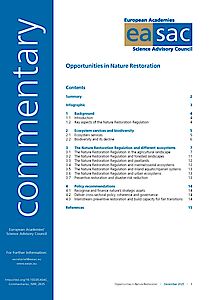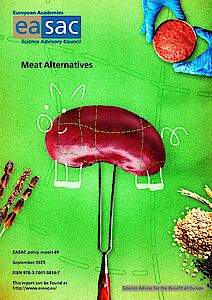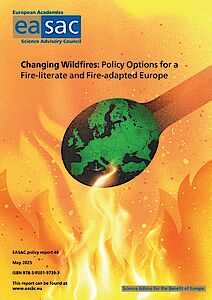Publications
Global Change Biology - Bioenergy
Michael Norton; Andras Baldi; Vincas Buda; Bruno Carli; Pavel Cudlin; Mike B. Jones; Atte Korhola; Rajmund Michalski; Francisco Novo; Július Oszlányi; Filpe Duarte Santos; Bernhard Schink; John Shepherd; Louise Vet; Lars Walloe; Anders Wijkman
https://doi.org/10.1111/gcbb.12643
Abstract
In recent years, the production of pellets derived from forestry biomass to replace coal for electricity generation has been increasing, with over 10 million tonnes traded internationally—primarily between United States and Europe but with an increasing trend to Asia. Critical to this trade is the classification of woody biomass as ‘renewable energy’ and thus eligible for public subsidies. However, much scientific study on the net effect of this trend suggests that it is having the opposite effect to that expected of renewable energy, by increasing atmospheric levels of carbon dioxide for substantial periods of time. This review, based on recent work by Europe's Academies of Science, finds that current policies are failing to recognize that removing forest carbon stocks for bioenergy leads to an initial increase in emissions. Moreover, the periods during which atmospheric CO2 levels are raised before forest regrowth can reabsorb the excess emissions are incompatible with the urgency of reducing emissions to comply with the objectives enshrined in the Paris Agreement. We consider how current policy might be reformed to reduce negative impacts on climate and argue for a more realistic science‐based assessment of the potential of forest bioenergy in substituting for fossil fuels. The length of time atmospheric concentrations of CO2 increase is highly dependent on the feedstocks and we argue for regulations to explicitly require these to be sources with short payback periods. Furthermore, we describe the current United Nations Framework Convention on Climate Change accounting rules which allow imported biomass to be treated as zero emissions at the point of combustion and urge their revision to remove the risk of these providing incentives to import biomass with negative climate impacts. Reforms such as these would allow the industry to evolve to methods and scales which are more compatible with the basic purpose for which it was designed.
back to overview
































